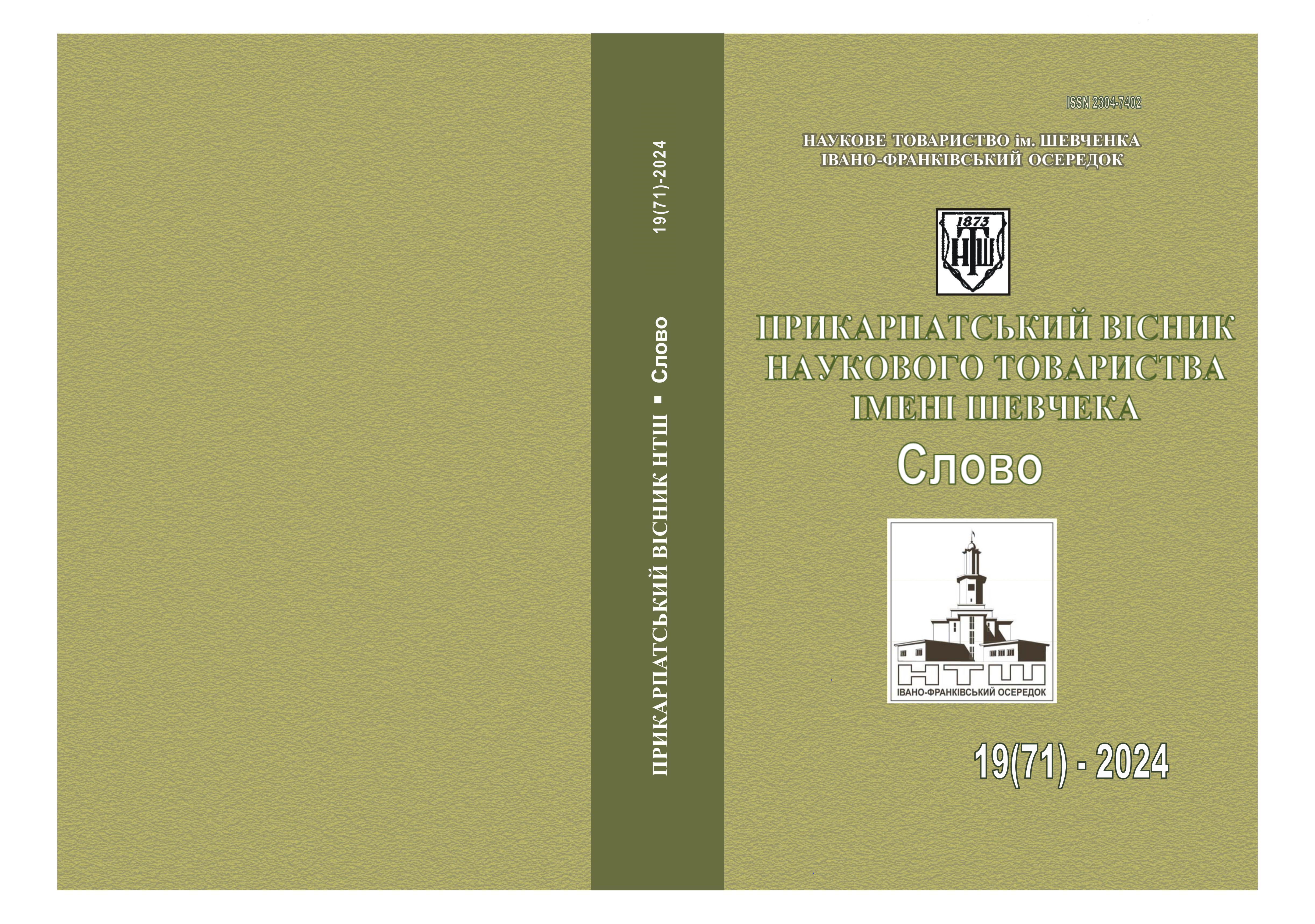SEMANTICS OF ADJECTIVE ‘MATURE’ IN POLISH AND UKRAINIAN LANGUAGE PICTURE OF THE WORLD
DOI:
https://doi.org/10.31471/2304-7402-2024-19(71)-101-114Keywords:
linguistic world picture, adjective ‘mature’, semantic structure words, connotations, context, comparative analysis.Abstract
The worldview of each nation has its own characteristics, that is why it is a goal our study is a reconstruction of a fragment of the language picture of maturity in Polish and Ukrainian languages, analysis of their common and distinctive features. Subject research is the mental image of a mature person in Polish and Ukrainian picture of the world. On the example of the adjective зрілий, дозрілий (ukr.) / dojrzały (pol.) / mature / ripe (eng.) (po in relation to an adult) we will try to investigate what changes are taking place in the semantics of the word in living language, as a word, falling into a different context, changes, in particular, in related languages. That is, on the one hand, let’s investigate semantics of the adjective ‘mature’ in Polish and Ukrainian, analyzing its etymology, dictionary definitions, and on the other hand, since in reconstructions of the linguistic picture of the world (LPW) are important contextual ones conditions that are defined as pragmatic, let’s turn to contextual ones interpretations of meanings and to the concept of connotation. The authors use by the method of semantic and cognitive analysis with elements of comparative and historical, structural and descriptive. As a result, we can conclude that it is mature personality in Polish and Ukrainian means ‘responsible’, ‘with a developed worldview’, ‘with a developed hierarchy of values’, ‘prudent’, ‘wise controlled’, ‘honest’, ‘truthful’, ‘internally strong’, ‘independent’, ‘brave’, ‘man of conscience’, ‘man of hope’, ‘knowledgeable’. Moral portrait of a mature person is built, first of all, on a certain system of values, as well as on specific signs of responsibility, duty, honesty, conscience and hope.
References
Заремська І.М. Мовна картина світу як об’єкт лінгвістичних досліджень https://enpuir.npu.edu.ua/bitstream/handle/123456789/16130/Zarems%CA%B9ka.pdf?sequence=1
Корпус української мови http://korpus.org.ua/.
Словник української мови / Ред. В. Русанівський. Т. 1. Київ, 2013.
Словник української мови: в 11 томах / Білодід І.К. та ін. Т. 3. Київ, 1970-1981.
Шумейкіна А. Сучасний підхід до аналізу семантичної структури багатозначного слова. Рідний край: альманах Полтав. держ. пед. ун-ту. Полтава, 2009. № 1(20). С. 62–68.
Bańkowski A. Etymologiczny słownik języka polskiego. T.1. Warszawa 2000.
Bartmiński J. Językowe podstawy obrazu świata. Lublin 1990.
Bartmiński J. Językowe podstawy obrazu świata. Lublin, 2012.
Bartmiński J. Punkt widzenia, perspektywa, językowy obraz świata. Językowy obraz świata, red. J. Bartmiński. Lublin 2004.
Encyklopedia wiedzy o języku polskim / pod red. S. Urbańczyka. Wrocław, 1978.
Bańko M. Inny słownik języka polskiego. Warszawa, 2000.
Korpus Języka Polskiego http://www.nkjp.uni.lodz.pl/.
Maćkiewicz J. Kategoryzacja a językowy obraz świata. Językowy obraz świata, red. J. Bartmiński. Lublin 2004.
Nowy słownik języka polskiego, red. E. Sobol. Warszawa, 2002.
Praktyczny słownik współczesnej polszczyzny / red. H. Zgółkowa. Poznań, 1994–2005.
Sławski F. Słownik etymologiczny języka polskiego. T. 1. Kraków, 1952–1982.
Słownik języka polskiego / pod red. W. Doroszewskiego. T. 1. Warszawa, 1958–1969.
Uniwersalny słownik języka polskiego, red. S. Dubisz S. T. 1. Warszawa 2003,

